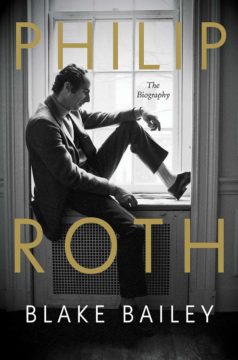Morten Høi Jensen in Liberties:
 Pity literary biographers. There are few writers less appreciated, there are none more despised. There they sit, with their church bulletins of family trees and their dental records, their interviews with ex-lovers, mad uncles, and discarded children, and go about “reconstructing” the life of someone they never knew, or knew just barely. To George Eliot, biographers were a “disease of English literature,” while Auden thought all literary biographies “superfluous and usually in bad taste.” Even Ian Hamilton, the intrepid chronicler of Robert Lowell, J. D. Salinger, and Matthew Arnold, thought that there was “some necessary element of sleaze” to the whole enterprise.
Pity literary biographers. There are few writers less appreciated, there are none more despised. There they sit, with their church bulletins of family trees and their dental records, their interviews with ex-lovers, mad uncles, and discarded children, and go about “reconstructing” the life of someone they never knew, or knew just barely. To George Eliot, biographers were a “disease of English literature,” while Auden thought all literary biographies “superfluous and usually in bad taste.” Even Ian Hamilton, the intrepid chronicler of Robert Lowell, J. D. Salinger, and Matthew Arnold, thought that there was “some necessary element of sleaze” to the whole enterprise.
And yet biographies of writers continue to excite the reading public’s imagination. Last year alone saw big new accounts of the lives of W. G. Sebald, Fernando Pessoa, Philip Roth, Tom Stoppard, D. H. Lawrence, Elizabeth Hardwick, H.G. Wells, Stephen Crane, and Sylvia Plath. The most controversial of these, of course, was Blake Bailey’s biography of Roth, which was withdrawn by its publisher just a few weeks after it appeared owing to accusations against Bailey of sexual assault and inappropriate behavior.
More here.
